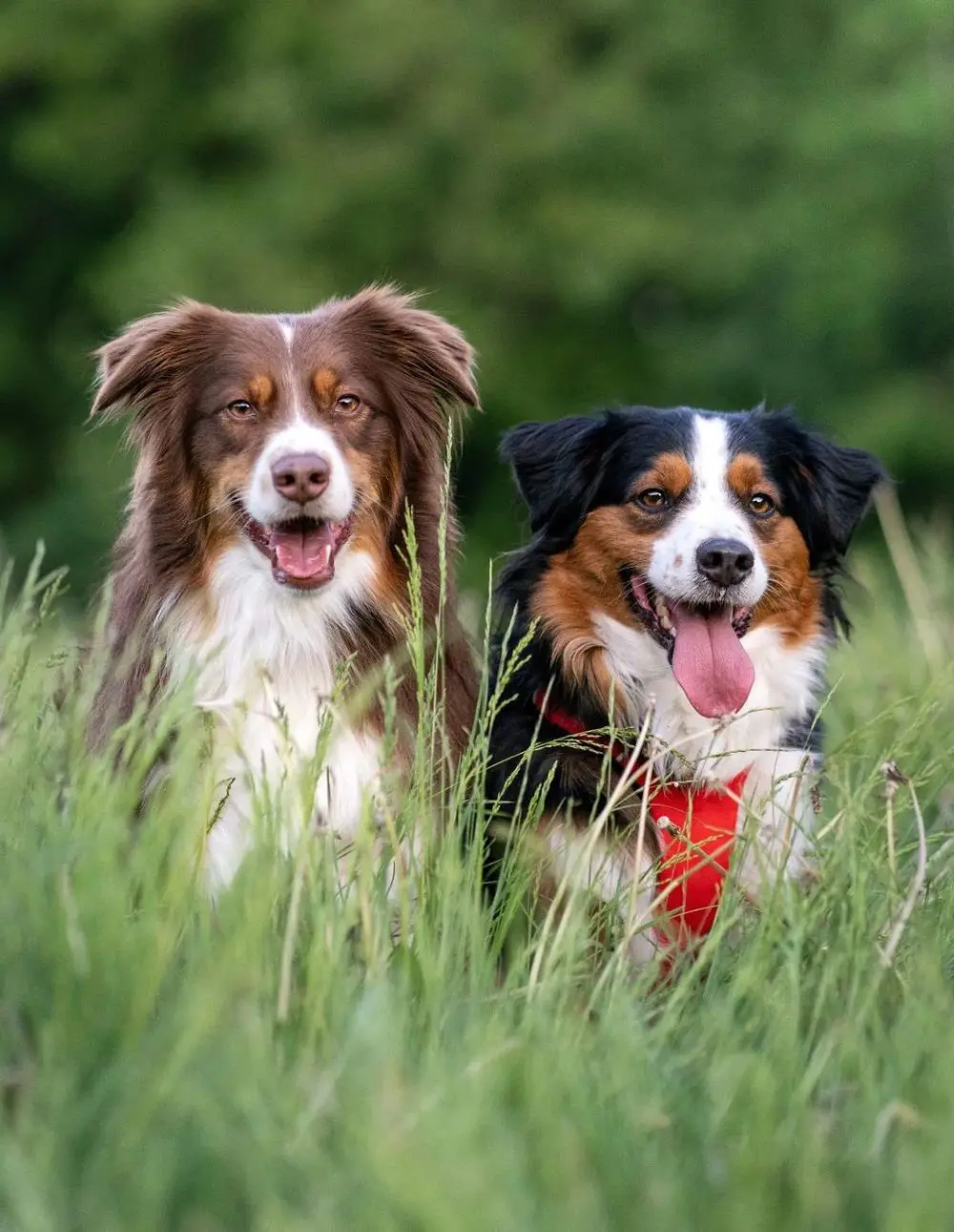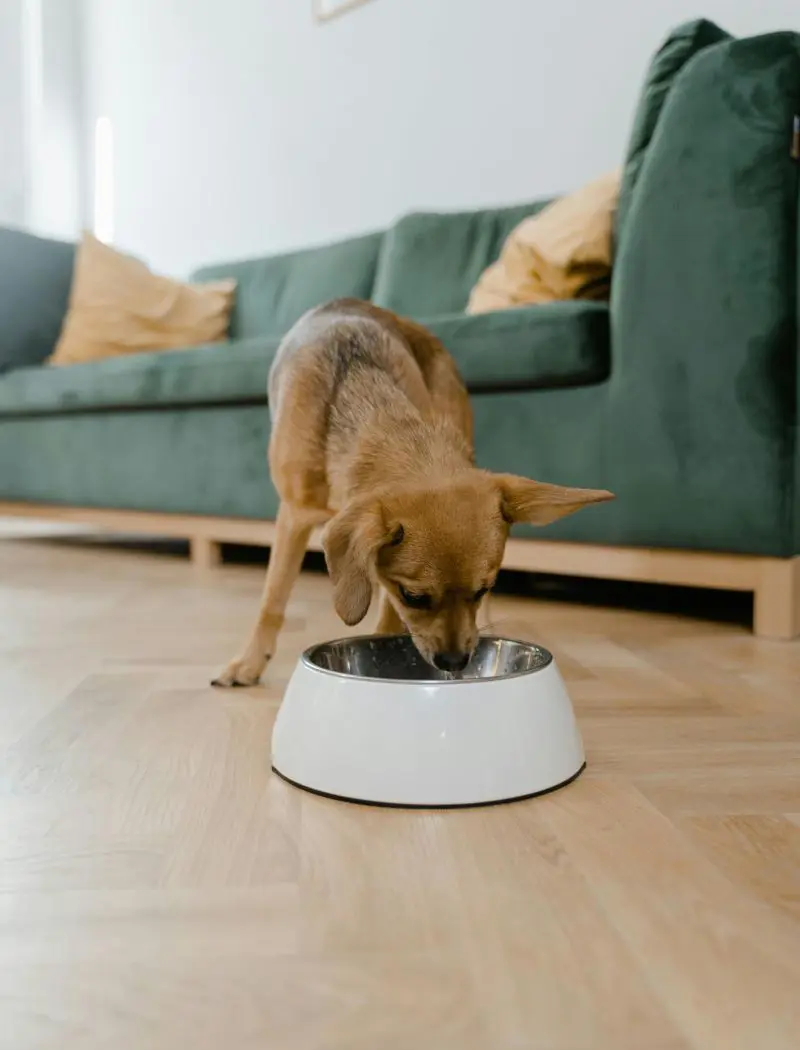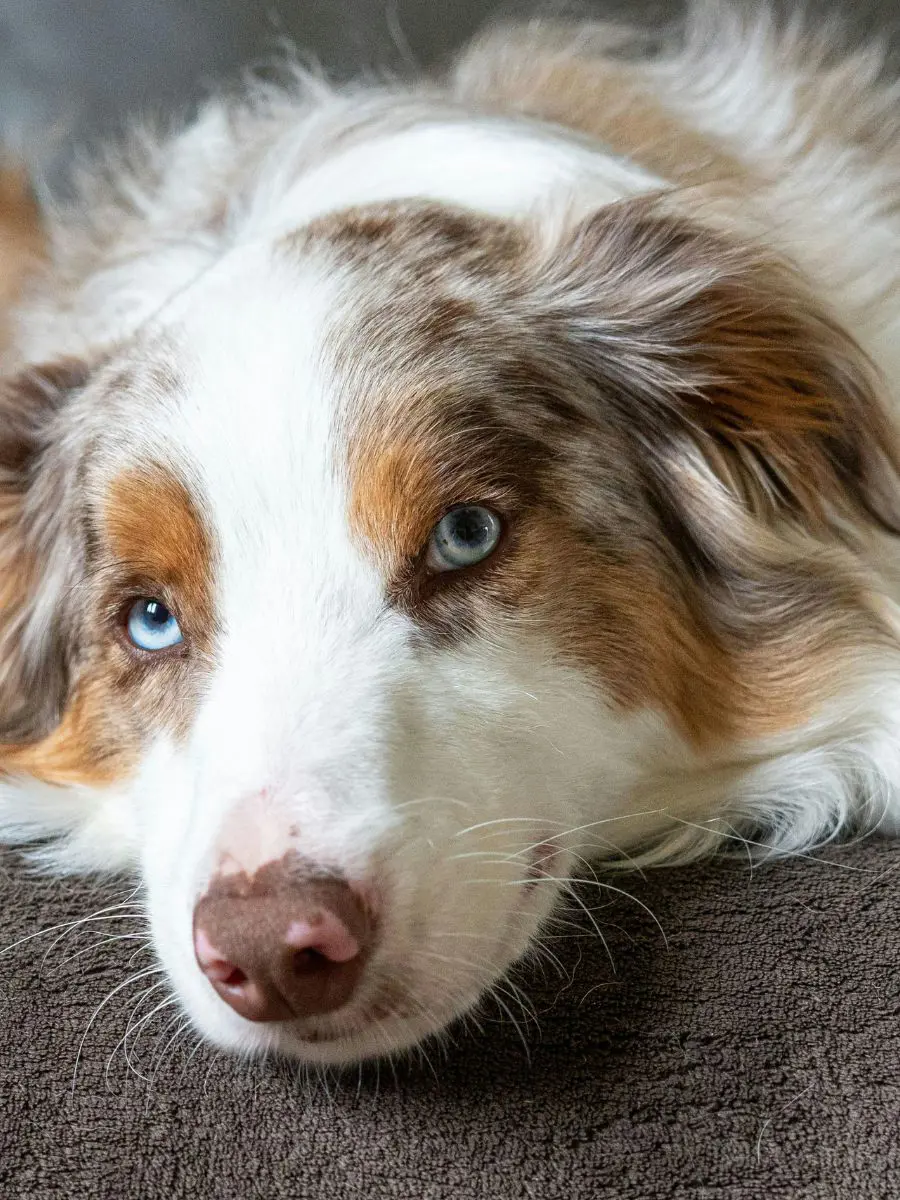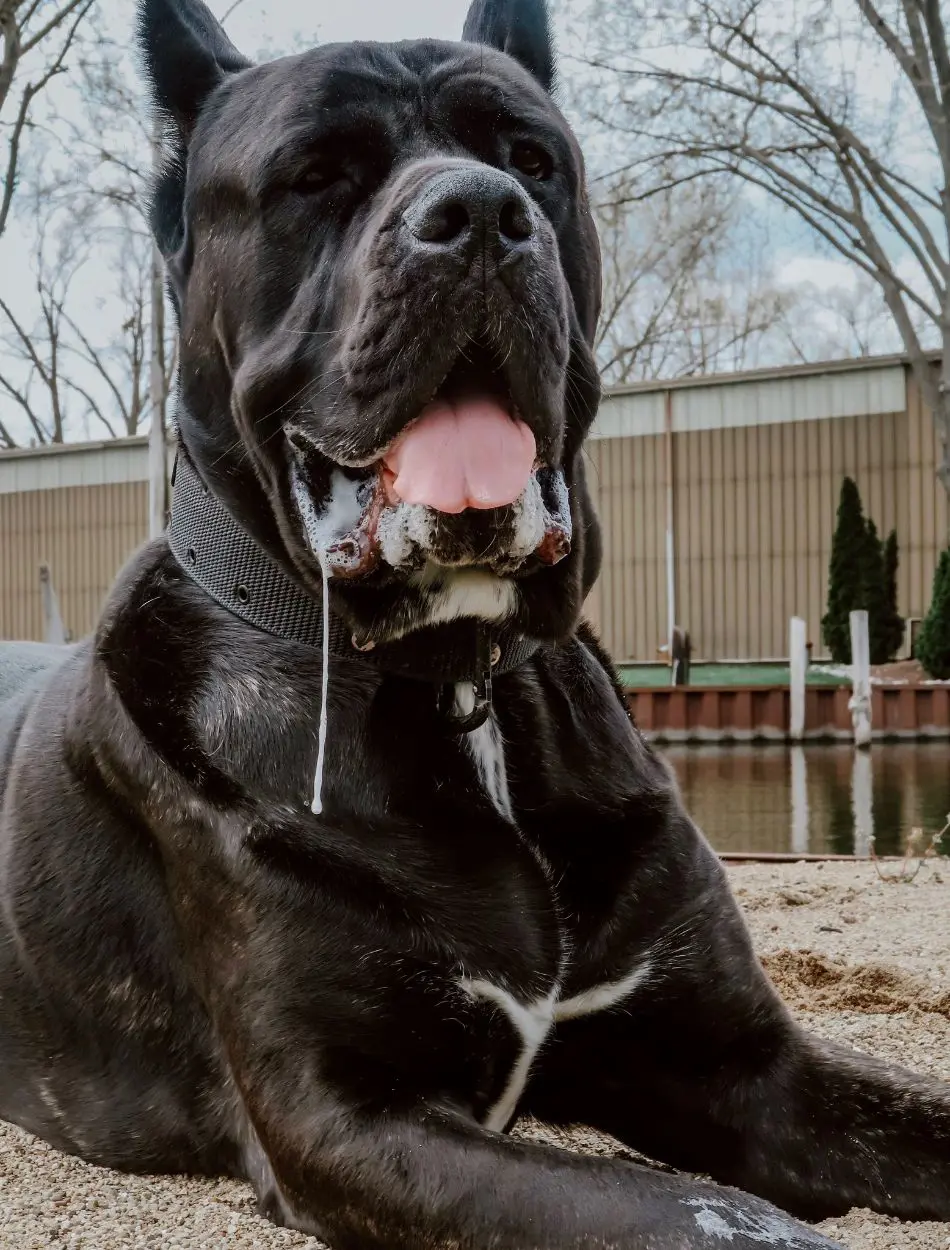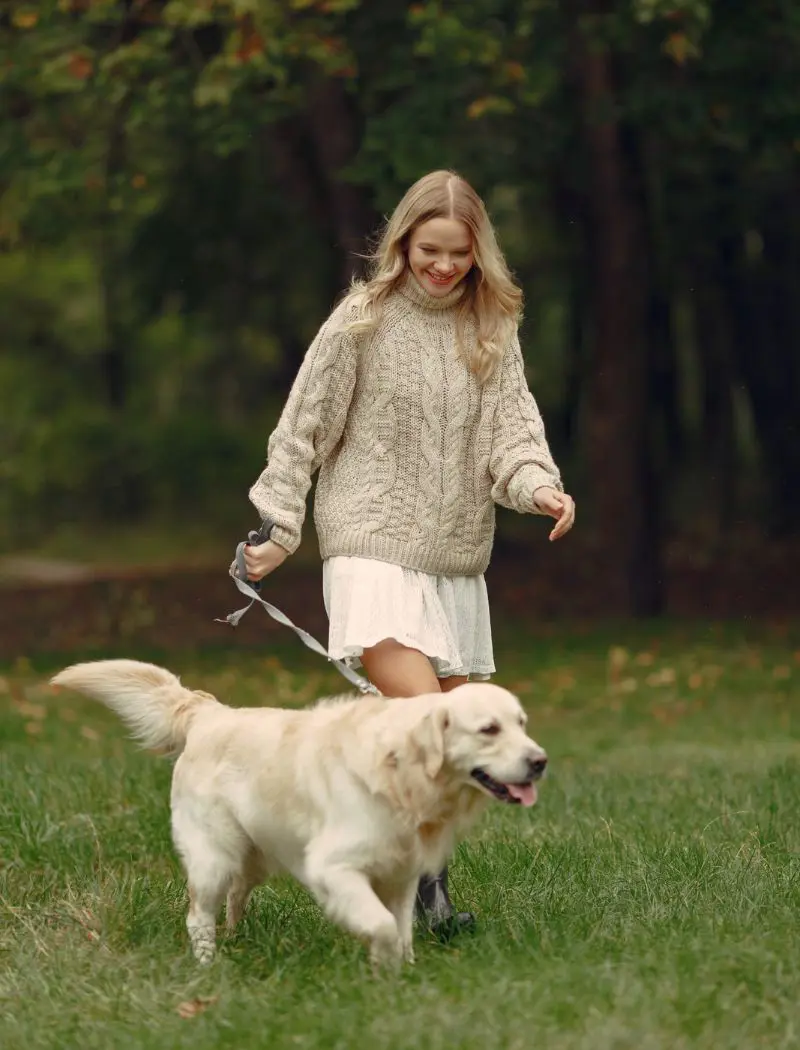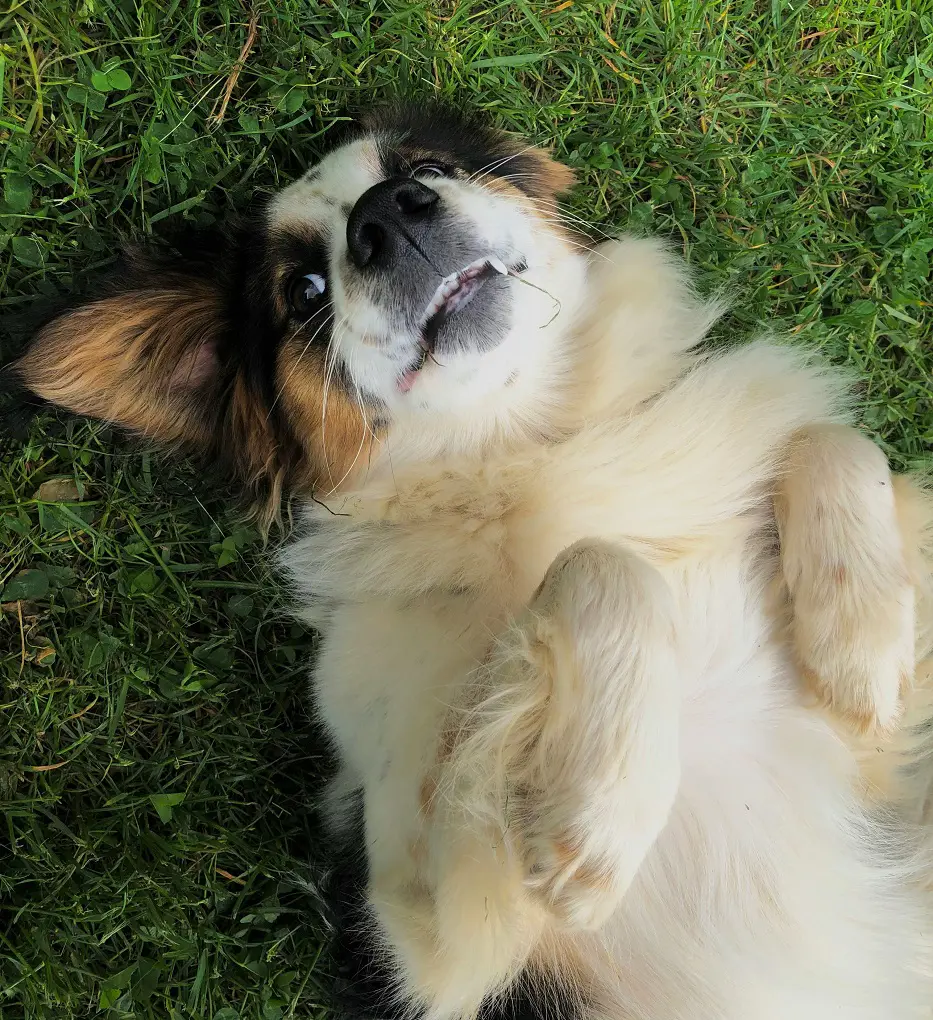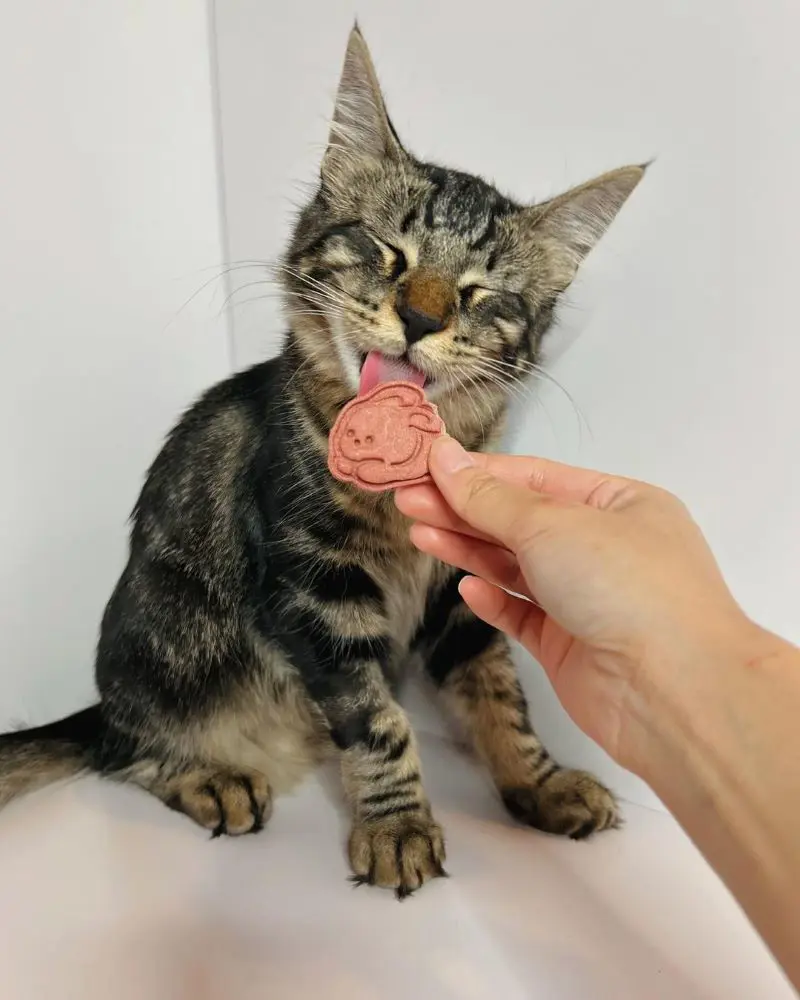10 Reasons Behind Dogs Chewing And Licking Their Paws
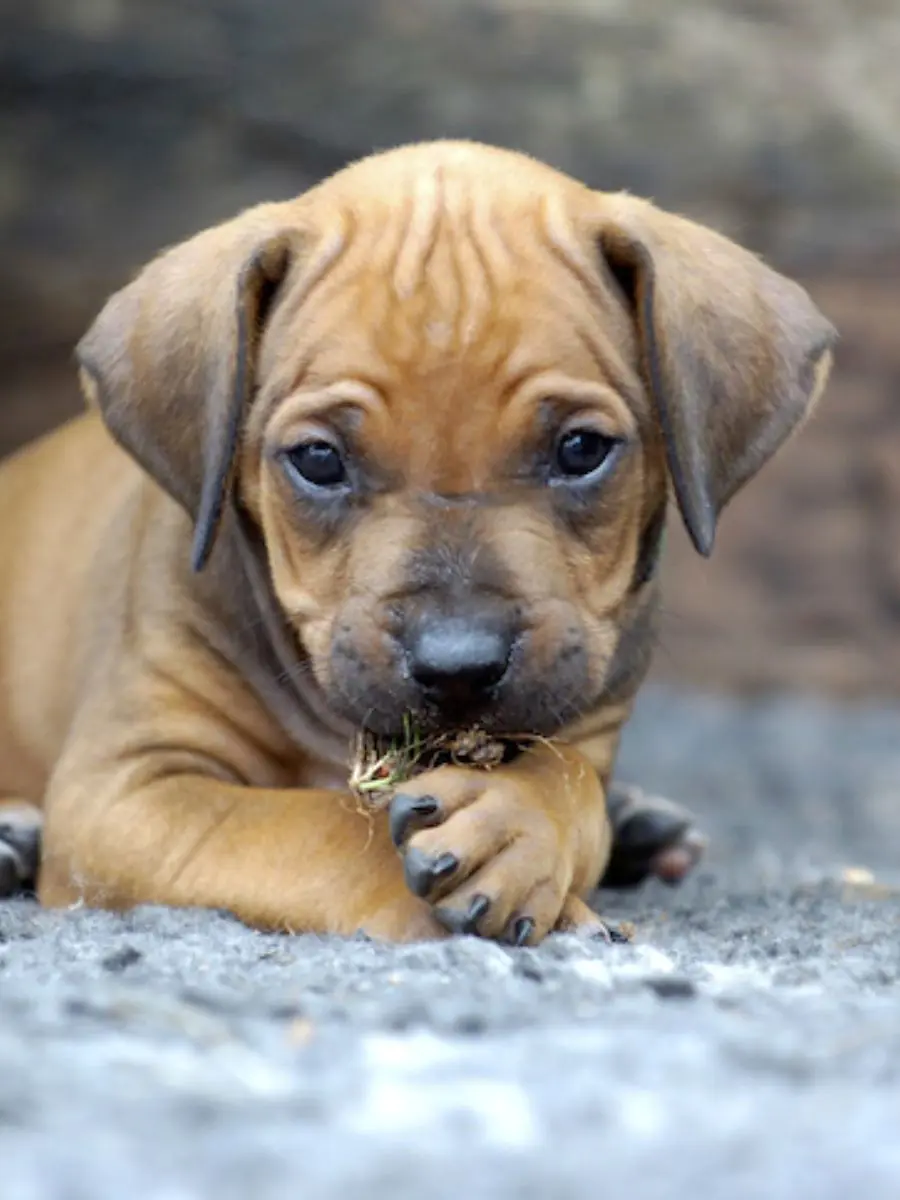
Some of the most harmless behaviors dogs depict are chewing on their paws. But if this obsession catches onto your pup, well, that raises a couple of curious eyebrows.
Your dog's tendency towards chewing and licking can affect general health and well-being. Identification of the causes therefore assumes prime importance in our quest to make sure our canine friend leads a happy life.
1. Skin Irritation
One of the worst reasons dogs excessively chew their paws is due to irritation of the skin. Much as it happens in human beings, it may be a result of itchiness or discomfort emanating from conditions like allergic reactions, fungal and bacterial infections, and environmental irritants.
This can make your dog instinctively want to lick or chew at their paws, which could worsen into an attempt to self-soothe the irritation. This also further aggravates the problem and creates a vicious circle of irritation-licking.
Common Types Of Skin Irritations
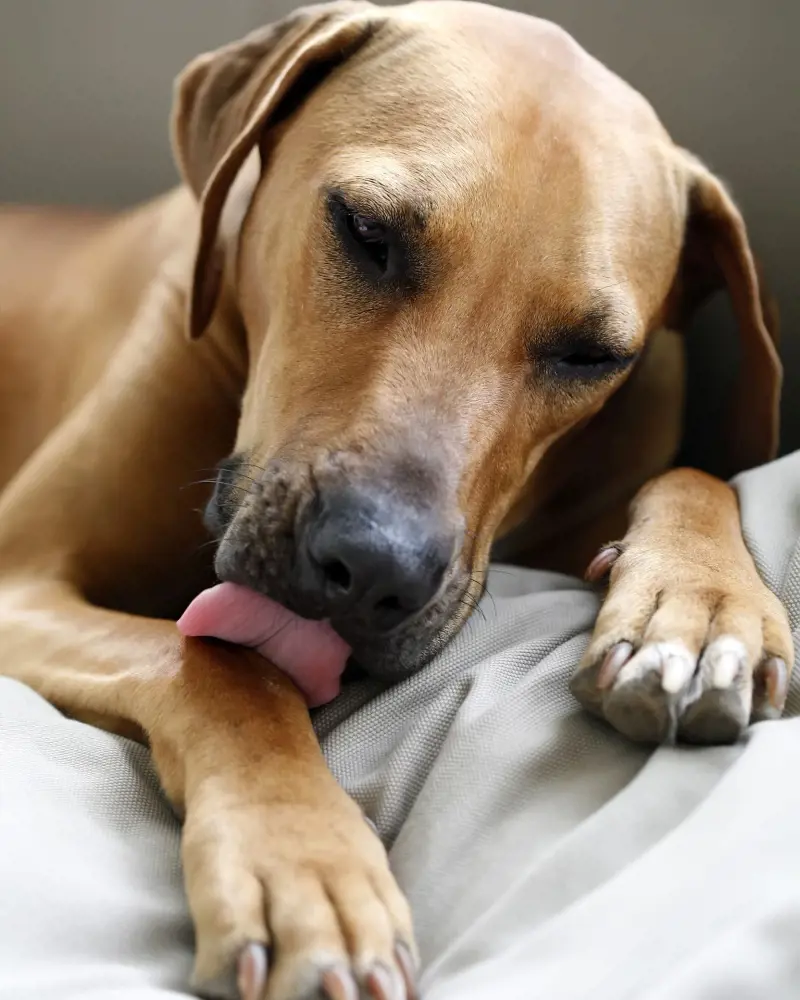
Infections On Skin
These manifest as redness, swelling, hair loss, and odoriferousness on the skin. This results from poor grooming, among other factors.
Hot spots
Also known as acute moist dermatitis, hot spots are skin lesions that appear to come from nowhere. This results in a sudden development of infection and inflammation through irritation caused by friction, scratching or licking, or congestion of moisture.
Contact Dermatitis
Irritant refers to anything that aggravates the situation. This involves chemicals and toxic plants irritating the animal, and at times, some grooming products. This can cause an eruption of redness, itching, and, in extreme conditions, blistering.
2. Allergies
Interestingly, allergens rank first among the most common causes of dog paw over chewing. A variety of things like pollen, dust mites, or certain foods can cause allergies in our furry friends.
The immune system is overactive when exposed to any of these allergens, causing symptoms of pain and burning the paws are the most affected area by the allergens, so it chews the paws too much to relieve the pain.
Types Of Allergies Your Pup May Be Suffering From
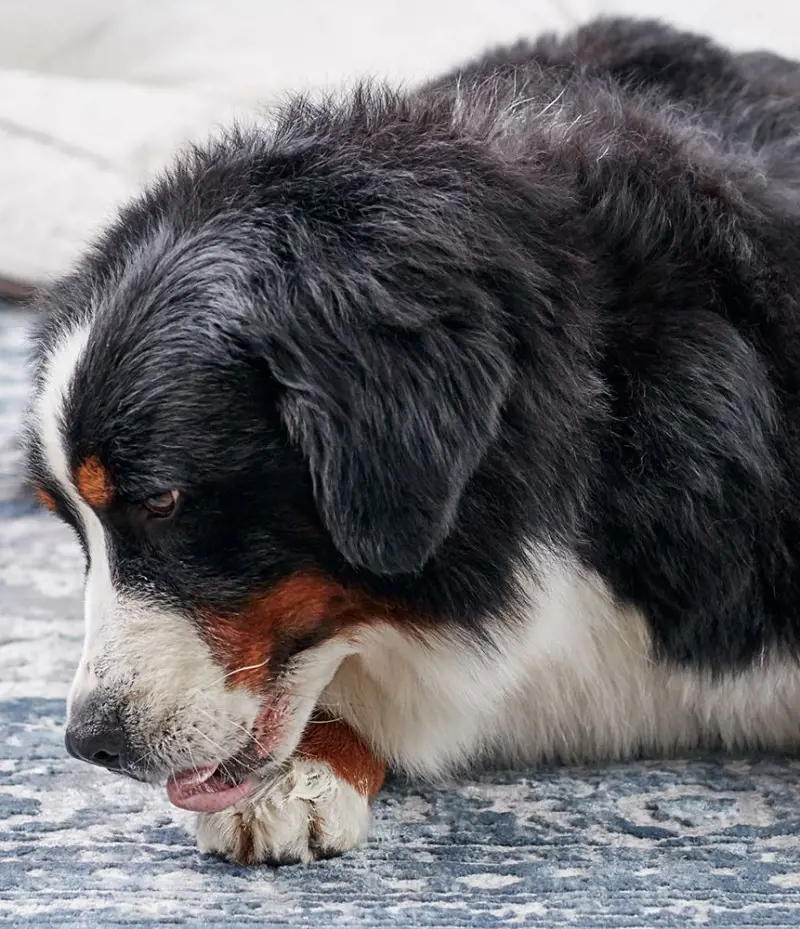
Environmental Allergies
This allergy, also called atopic dermatitis, occurs as a reaction to elements like pollen, mold, dust mites, and grass.
Food Allergies
It is a reaction to the components of food that may include beef, chicken, wheat soy, or even some types of food additives.
Contact Allergies
Direct contact with an offending agent or material that may be plants, chemicals, or materials.
Flea Allergy Dermatitis
This is an allergic reaction to the flea's salivary secretion that leads to critical itching as well as skin inflammation. These result from just a single bite of a flea.
Allergies to Medication
This is an unfavorable medication or perhaps a treatment response.
3. Injuries
Licking creates endorphins that for that moment may take the discomfort away, much as humans would conduct by rubbing some part of their body that hurts.
Injuries are among the major reasons dogs chew on their paws, but excessive licking of the wound may further cause injuries or lead to infections.
It all depends on observations by a pet owner about his furry friend's licking and getting them to a veterinarian if suspicion of an injury should arise.
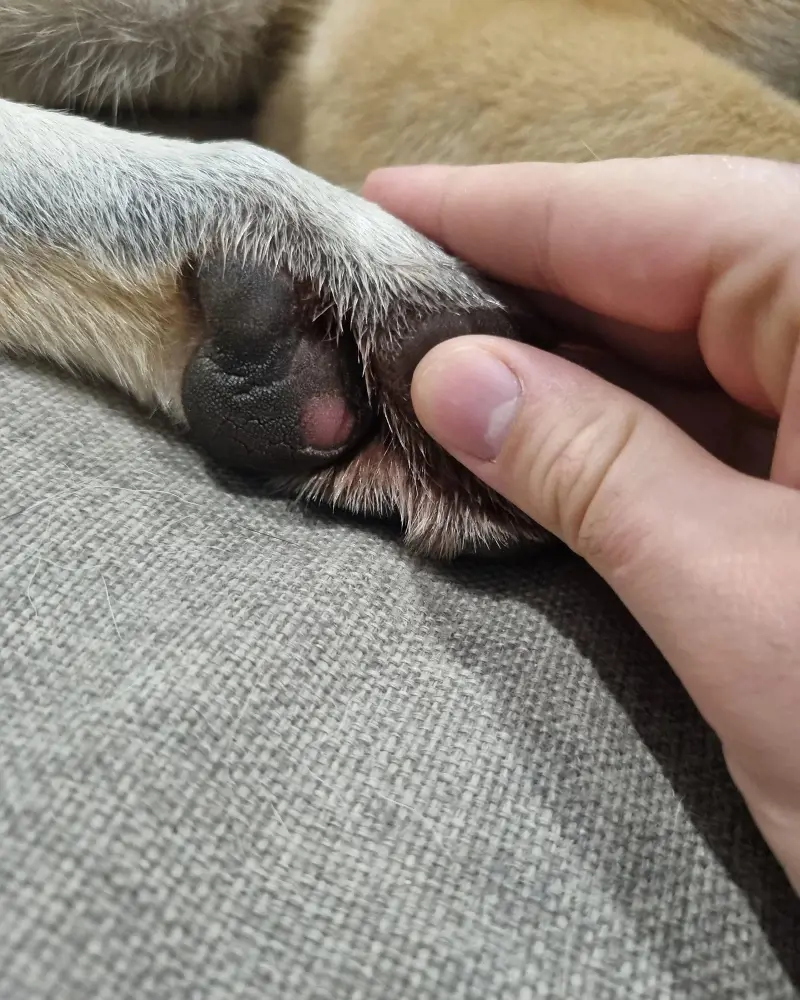
Injuries That Your Pup May Sustain
- Cuts and Scrapes
The dogs suffer cuts or scratches from sharp substances, rough surfaces or even playing with other animals. - Abrasion
It is a superficial wound involving the grazing or friction of skin normally against rough surfaces. - Burns
Dogs suffer burns from hot surfaces, in chemical form, or due to exposure to intense temperatures. - Bites or stings from insects
Bees, wasps, ants, and ticks may cause bites or stings which may make dogs chew and lick their paws. - Foreign bodies
The dog may step on glass or thorns which may puncture the skin to allow foreign bodies to penetrate or lodge within the skin.
4. Parasites
Some of the most common parasites to create a situation where your dog over-chews his paws are fleas, ticks, and mites. These little critters might just cause an irritating, itching sensation that tantalizes your dog enough to lick and chew at his paws.
Since any other parasite causes an infectious disease in the bodies of dogs, prevention is always better with the precaution with the tick and flea treatment ensuring the comfort of your furry friends.
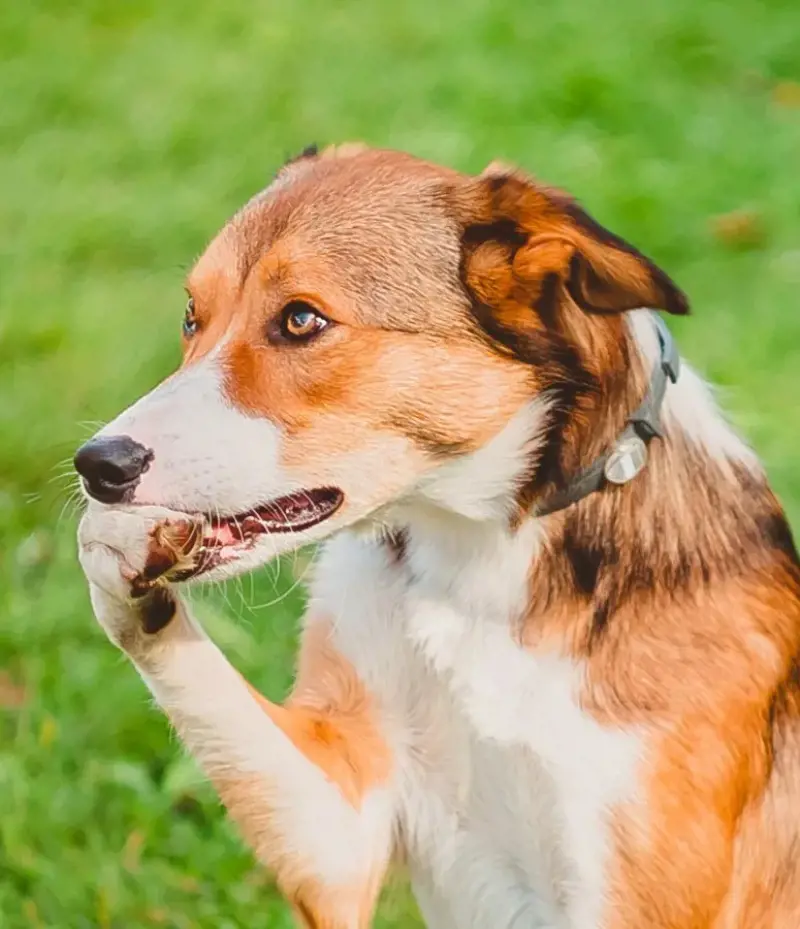
Types of Parasites That Affect Dogs
- Fleas
These parasites are common minute insects subsisting on animal blood, infesting dogs, and causing itching, irritation, and allergic reactions. - Ticks
They hitch onto the skin, suck blood, and hence send diseases to the body of dogs affecting their health and well-being. - Mites
All microscopic parasites infect dogs to cause diseases such as mange and ear infections by ear mites in dogs amongst other cutaneous diseases. - Scabies Mites
They penetrate the canine skin, causing uncontrollable itching, hair loss, and skin irritation.
5. Behavioral Problems
Behavioral issues can make the dogs direct their attention to chewing themselves as a stress-relieving mechanism. Stress, anxiety, boredom, or just a habit formed by a dog through experience may make them invest extensive time in licking their paws.
Vices are those such as licking brought about by factors including boredom or lack of mental stimulation that make the animal develop compulsive behaviors to fill the void.
To help clear this excessive need to lick their paws, one must understand the root cause of the behavioral problem for its alleviation.
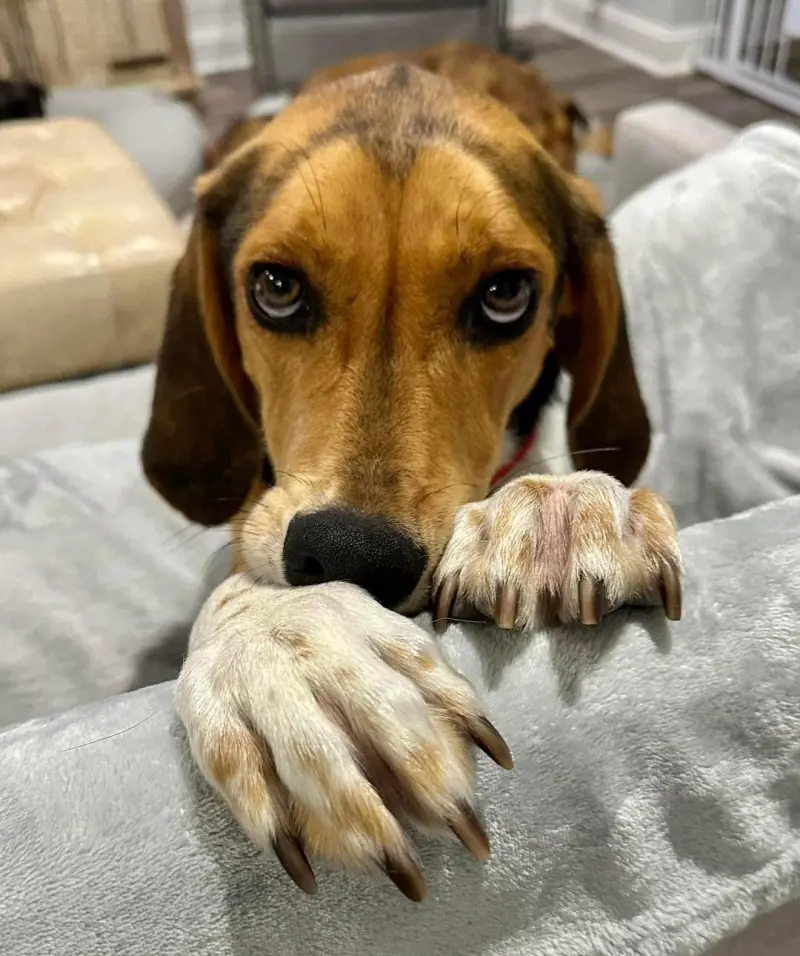
Possible Factors of Behavioral Problems:
- Lack of socialization
Poor socialization through the periods of development can make a dog fearful, and aggressive towards new dogs, people, and places, among so many other issues. - Poor training
To engrave any good etiquette within a dog, a dog needs proper training with boundaries properly set. Poor training with rewards without any kind of discipline will only promote immoral behavior and disorder in them. - Stress and Anxiety
An abrupt change of routine, loud noises, and even being left alone for an uncomfortably long period can result in anxiety and stress in canines.
This could be a well-grounded reason for both stress and anxiety in dogs, hence unnecessary behavior such as excessive barking, destructive chewing, and even aggression in some cases. - Medical Issues
Abnormal behavior may denote pain, abnormalities in the hormone system, or neurological diseases in dogs. Organic causes of unusual behavior must be ruled out. - Environmental factors
Life in noisy crowded conditions with stressful events favors the development of behavioral disorders.
6. Inflammatory Conditions
It is usually repetitive because it relieves a dog from discomfort and provides a completely compulsive response to them, leading to the release of endorphins acting somewhat like natural painkillers.
The development of self-soothing, through its progression into licking, could arise when allergies, infections, or even autoimmune disorders strike a dog and bring on anemia-area states of inflammation.
However, in dogs, the syndrome presents as obsessive licking and chewing of the paws with continued irritation and trauma of the paw pads. Further, excessive licking introduces bacteria and fungi that further cause irritation and secondary infection of the tissues.
Possible Causes Of Inflammation
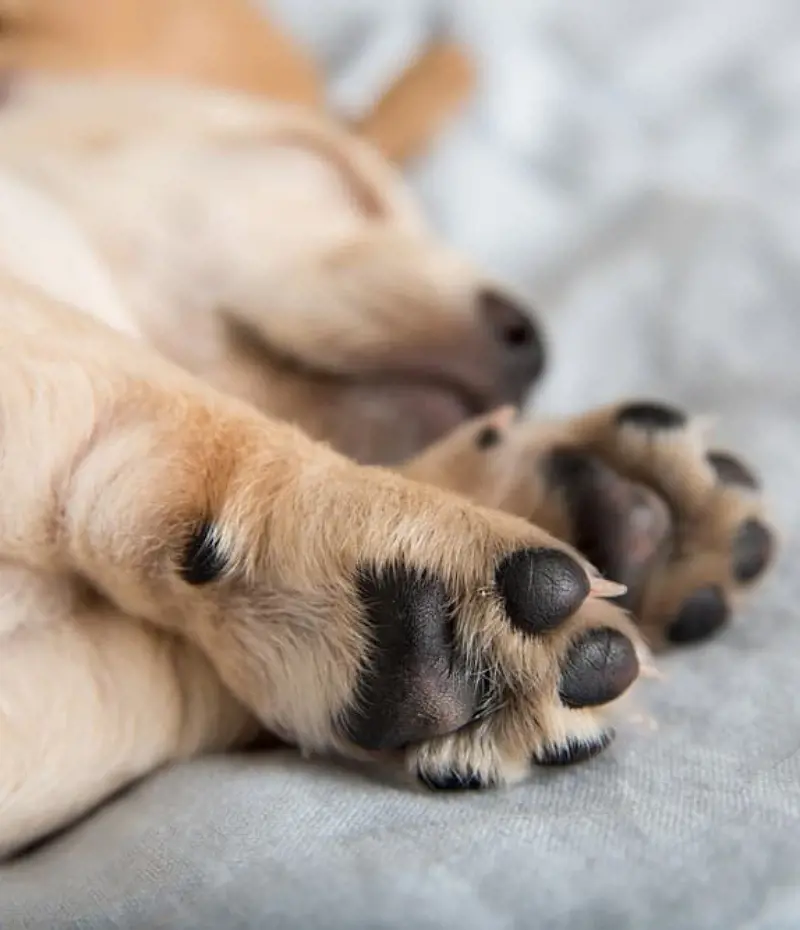
Autoimmune Disorders
These are conditions in which the immune system is compromised, mistakenly targeting tissues and organs in the body thus causing inflammation of the affected tissues and organ tearing conditions that lead to chronic pain, fatigue, and dysfunction of the affected body parts.
Chronic Diseases
They may result in the chronic involvement of respective organs and causes of inflammation in the body. In contrast to acute inflammation, which is a short-term protective response, it harms the tissues of the affected body parts.
Obesity
This additional body fat tends to secrete pro-inflammatory chemicals within the system. These, in turn, lead to low-grade systemic inflammation. Hence, inflammation is maintained for relatively long periods, often leading to further health complications such as cardiovascular disease.
Trauma
Physical traumas such as cuts, burns, and blunt force traumas would normally spontaneously begin the normal process of recovery. It begins with the normal inflammatory response in that the body's immune response provides increased blood flow at the site of injury with white blood cells to clean up the debris and start the repair. Recovery usually presents swelling accompanied by discomfort.
7. Dry Skin
Dry skin is the other big villain leading to the habit of a dog licking its paws. Much goes into its creation, starting with the weather and allergies or health issues, just like in humans.
This would make the dogs at such times start excessively licking the paws as a soothing measure to relieve the irritation, and this makes the skin dry, itchy, and sometimes uncomfortable.
However, this excessive licking advances the condition to the worst stages since it strips natural oils off the skin and may cause inflammation.
Common Causes Of Dry Skin
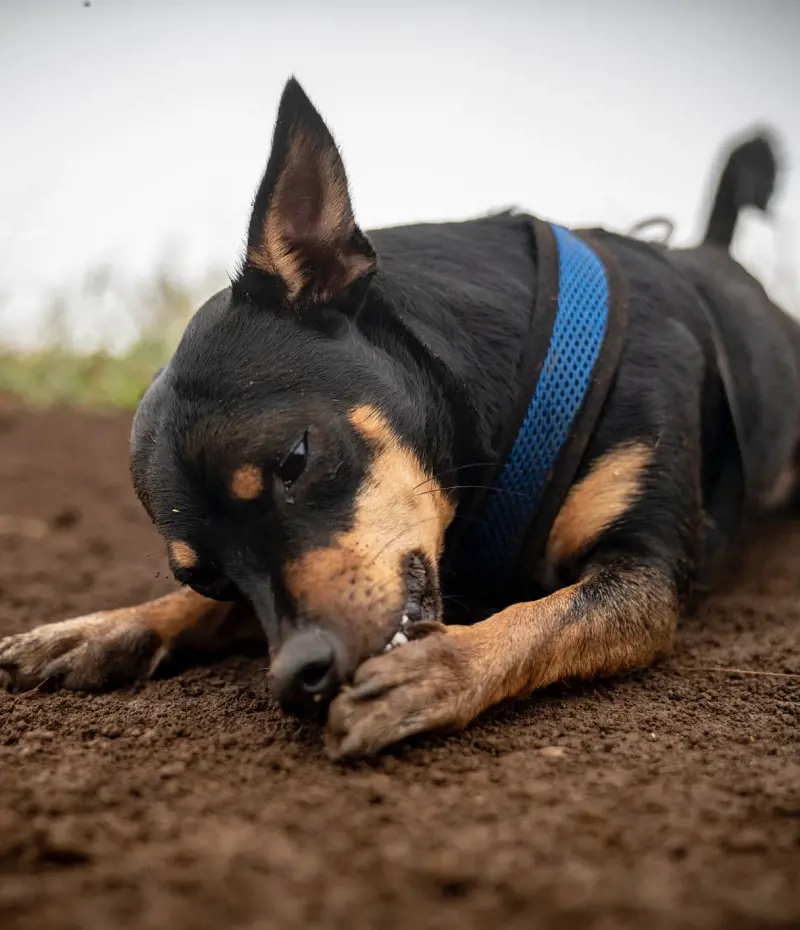
- Weather Conditions
The same thing occurs when it happens to human beings, through cold and dry air in winter and scorching heat during summer, it dehydrates. - Poor Nutrition
Feeding the dog on a diet that is ill-equipped with essential fatty acids, vitamins, and minerals results in unhealthy skin and a dry coat. Two such fatty acids that are very vital in supporting skin and fur health are omega-3 and Omega-6. - Bathing too much
Overbathing your dog or using the wrong shampoo that takes oil away from the skin, causes dry skin and irritation. - Infections
Symptoms therefore include dermatitis, bacterial, and fungal infections, including yeast infection.
8. Habit
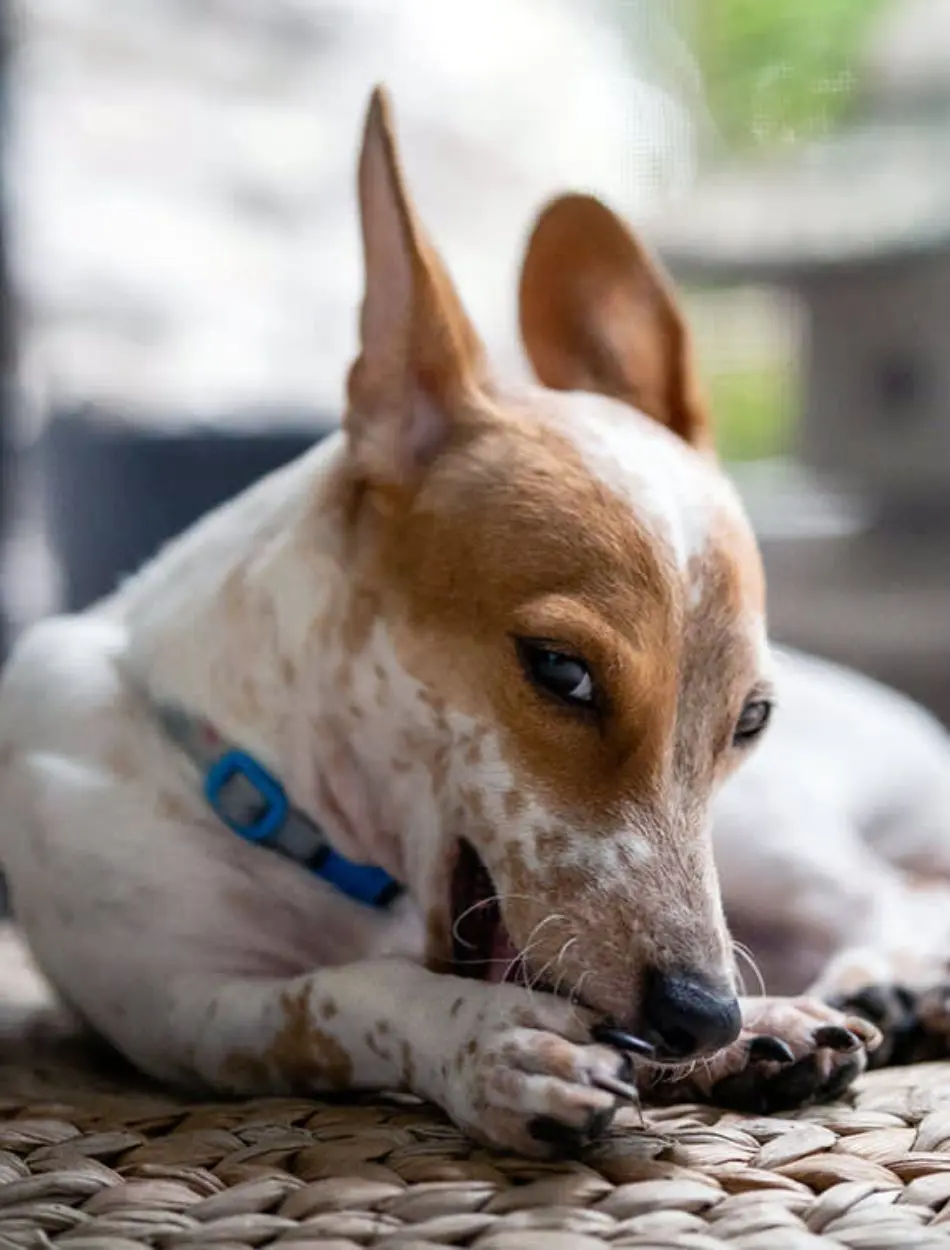
Chronic chewing and slobbering on the paws of other animals is unrelated to this particular problem and represents little more than a habit. The action is instituted by some specific etiology such as allergy, trauma, or irritation but the act of licking or chewing to alleviate the problem often becomes a habit.
Dogs are creatures of routine, and once inculcated deep into them, breaking this may be hard. If your dog has developed a habit of licking or chewing its paws, you must address the underlying issues as well as ways in which the dog can deal with stress or anxiety.
9. Grooming
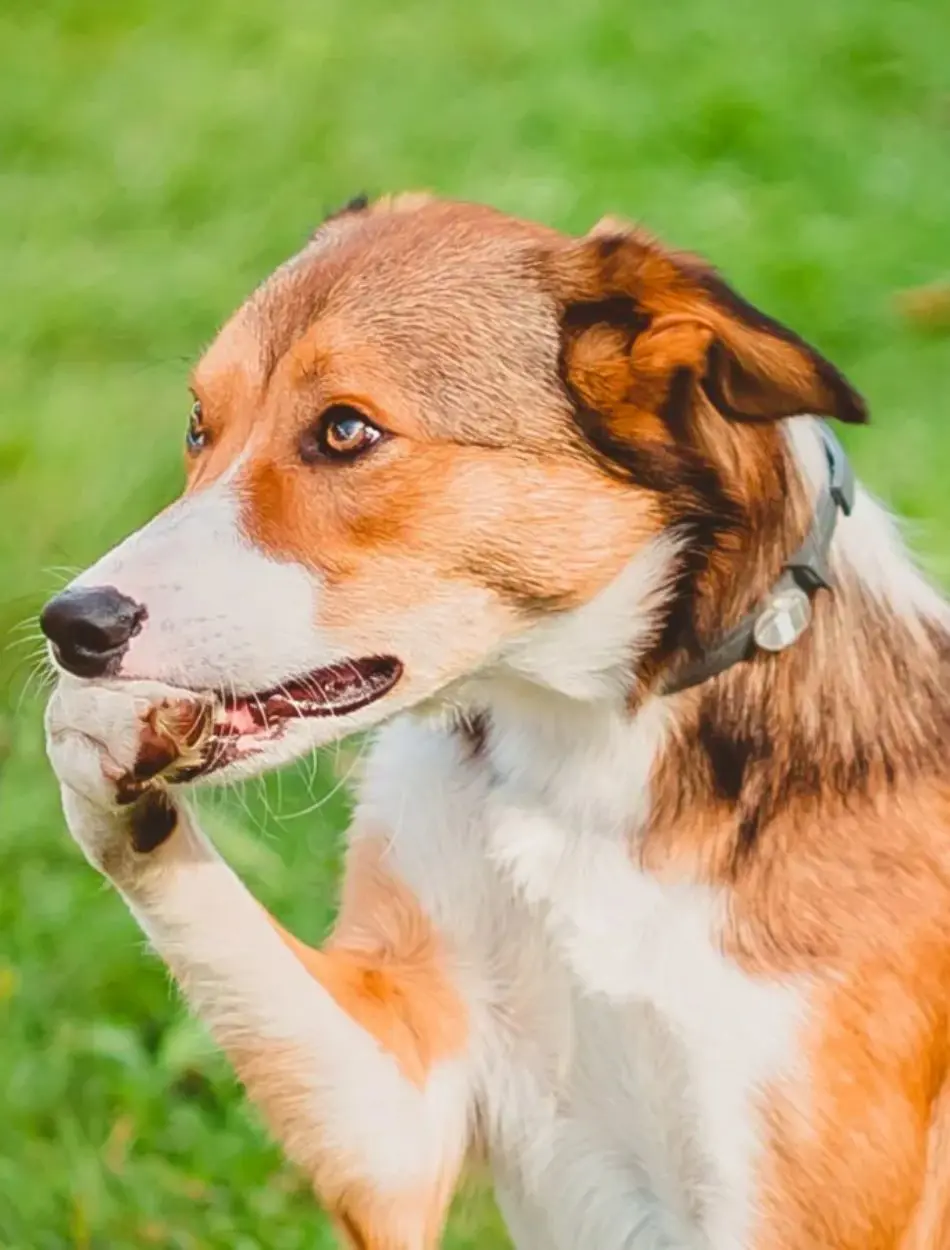
Dogs use their tongues to lick and hence take away any forms of dirt, debris, or other forms of substances that they may collect while walking or playing. This is usually innocuous and only reflects one of those instinctive needs of a dog to keep itself clean.
However, excessive grooming by the dog itself in the form of constant chewing or licking of the paws is often indicative of a problem. Of course, at times dogs do lick their paws to clean up after a walk through wet or dirty surfaces and following a grooming session.
10. Nutritional Deficiencies
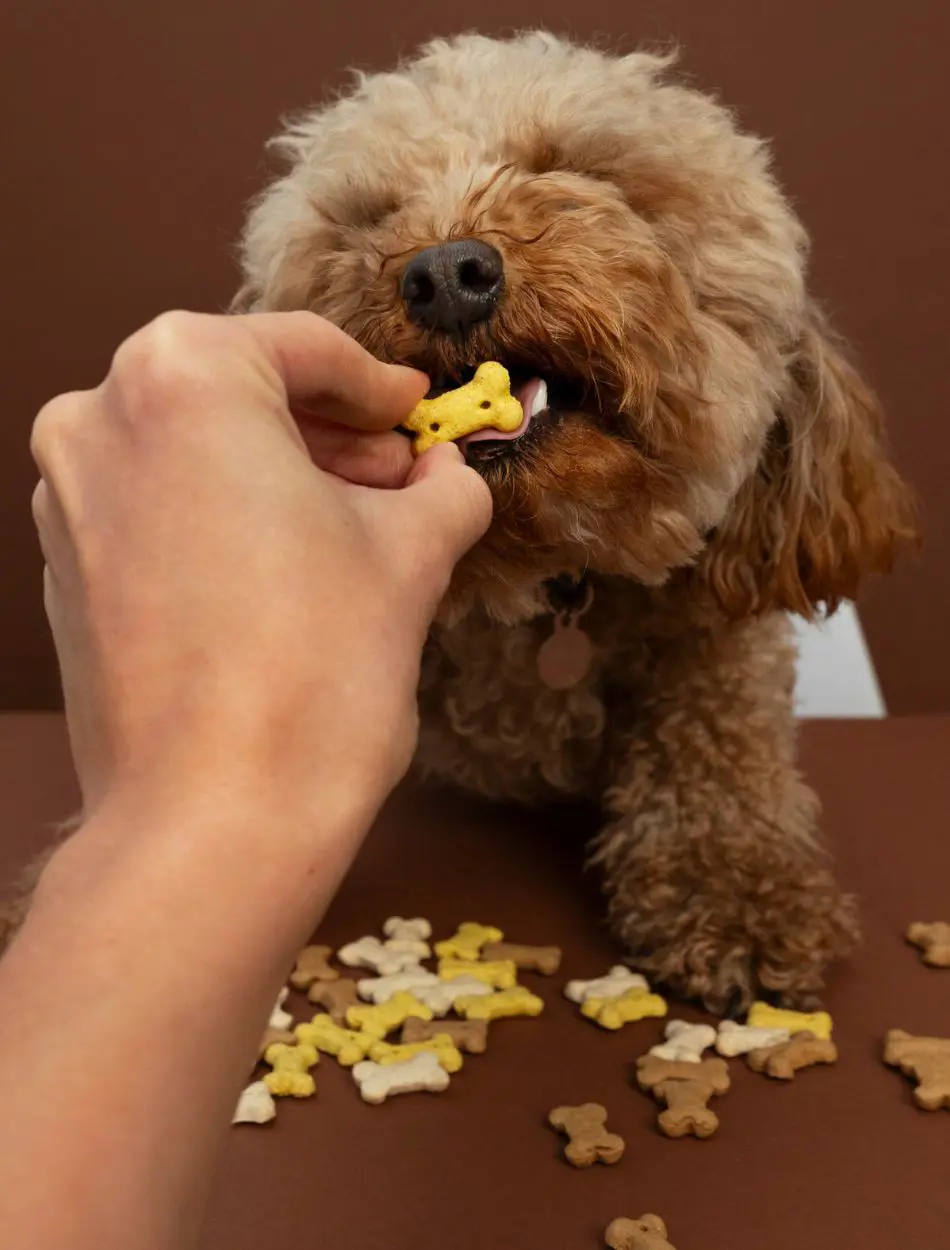
Among the many routine causes that could ensure the development of dog paw chewing and licking, nutritional deficiencies exist. Like human beings, dogs do have something like basic needs in nutrition.
Intake of essential nutrients necessary for overall health, skin, and coat. "When a dog has a shortage of some nutrients in their diet, the skin persists dry and flaky, and thus bothers them.".
Omega-3 and Omega-6 fatty acids are all significant skin constituents that help to support the good health of the skin barrier. In their deficiency, a dog's skin will get dry and irritated thus he will excessively chew or lick as a way of soothing this irritation.
How To Stop The Excessive Paw Chewing Habit
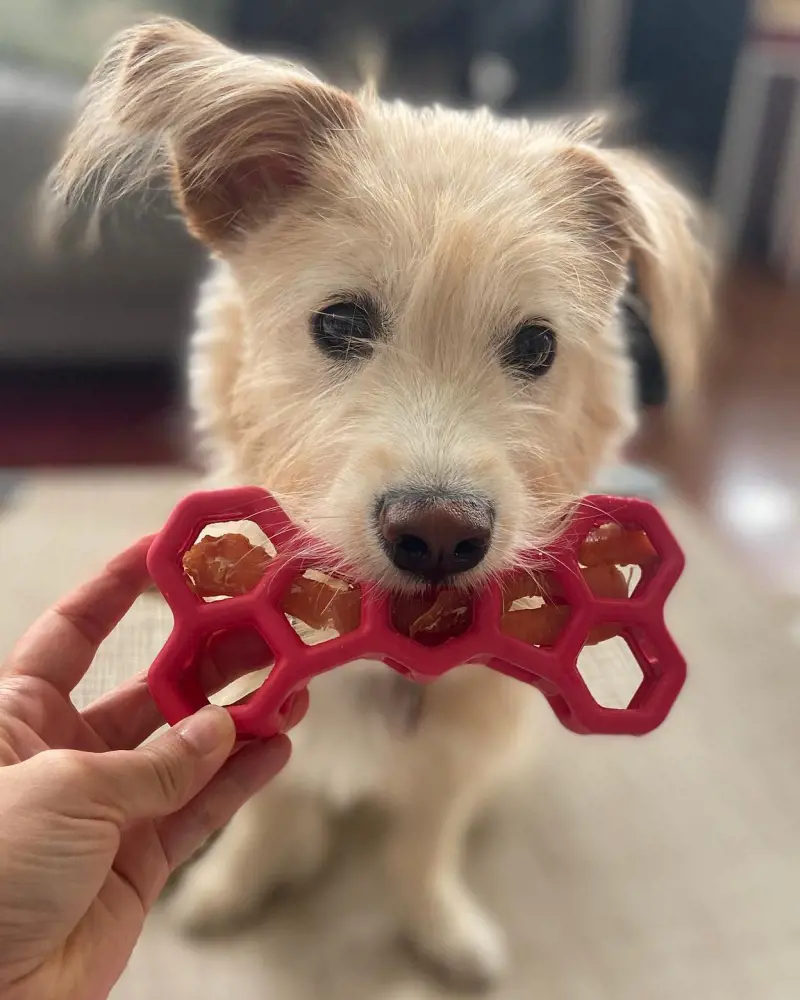
Unduly excessive paw licking in dogs has caused several detriments both physically and behaviorally. Hence, the reason for the lick is to be pointed out and set right to keep further complications at bay for the sake of your furry friend.
Some useful tips are given below that will help your puppy get out of this problem.
Keep Them Clean
It cleanses and dries the paws to prevent any irritation or itchiness from setting in, and always checks them for foreign objects or open sores. You can also rub a wet cloth on their paws after playing or going for a walk outside, hoping this should prevent dirt build-ups.
Provide Diversions
Also, divert your dog's energy toward certain activities that would take its mind off from licking. Examples include several interactive playtime games that one can have with their toys or even with the help of puzzles. In this way, you will be stimulating your dog both mentally as well as physically.
Dog-Safe Products
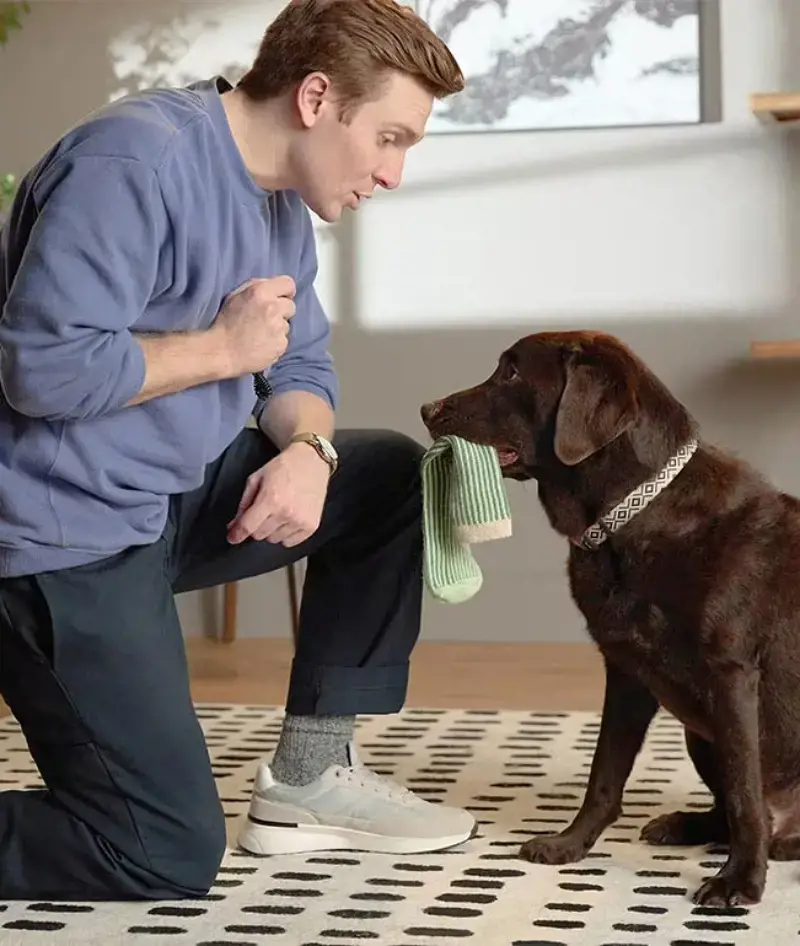
Try to take him off that licking by sprinkling something bitter on his paws, some spray or cream. Just make sure they are friendly to pets and don't damage anything. It should also contain ingredients of natural origin only, such as shea butter, coconut oil, and vitamin E.
Training
Reinforcement techniques can break your dog from this habit of licking by making use of doggy treats and praise based on the usage of dog commands. In this approach, you give them something constructive to focus all of this energy on.
Exercise
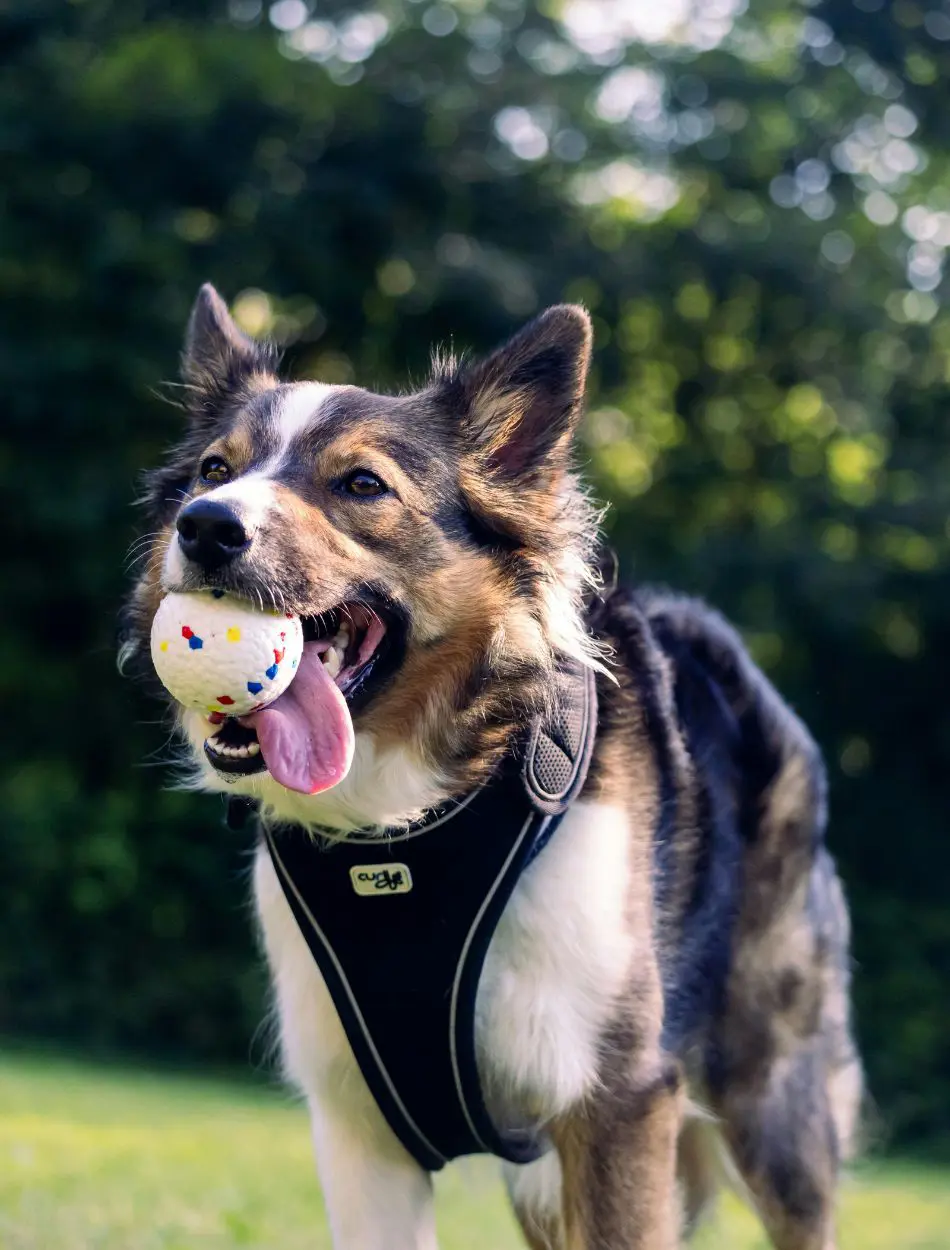
They require walking, time to play, and physical and mental training to keep them engaged. This acts to prevent anxiety and more importantly boredom. Training also helps in enhancing blood flow and therefore muscle strength to aid in the prevention of injury and relieve pain in some cases.
Consider Medical Treatment
Worse still, your veterinarian may have to prescribe medicines or special treatments that could suppress some of the problems responsible for this extraordinary paw licking. Your veterinarian may recommend skin scrapings or even testing for allergies to locate such a condition.
Recent posts
Dogs
Why Is My Dog Panting? 18 Reasons For Breathing Fast
Dog owners, those in tune with their pets, can often notice a change in their companion’s behavior. When unwell or scared, some dogs hide while others seek solitude. Similarly, panting is a normal sign of tiredness or lethargy, but can also imp...
18 Reasons Why Your Dog Is Not Eating
A skipped meal here or there is normal, but your dog consistently refusing food is the cause of concern. The reasons range from dietary issues to more serious health conditions and behavioral issues. The dog may be a picky eater or there might be som...
17 Causes Of Seizures In Dogs
Don't dismiss your pet dog's uncontrolled twitching movements as harmless shivering - you may be bearing witness to the classic signs of a seizure. These sudden and involuntary electrical disturbances can drastically impact a dog's health and even ch...
18 Reasons Why Your Dog Is Drooling So Much
While drooling in dogs is perfectly normal in certain situations, excessive or continued drooling may hint at a more serious issue that requires attention. Once you know the probable causes of this drooling in your dog, you can take some necessary st...
18 Reasons On Why Is My Dog Limping
A dog limping can be a cause of concern and cause stress to owners. It is not normal dog behavior and can be a sign of health problems in dogs. Understanding why your dog is limping is important to cure this problem. This article discusses 18 reasons...
Why Is My Dogs Stomach Making Noises?
Any pet parent with a dog in their family can relate to the horrors of the unwarranted strange sounds occasionally coming out of their pal’s stomach. Though occasional tummy rumblings are nothing to worry about, frequent or loud noises should b...
